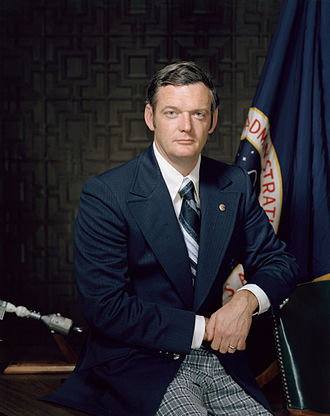- Date Of Birth: November 27, 1936
- Date Of Death: March 19, 2021
- Spouse: Marilyn Kurtz Lunney
- Occupation: NASA manager and flight director
- City: Clear Lake
- State: Texas
Glynn Stephen Lunney (November 27, 1936 – March 19, 2021) was an American NASA engineer. An employee of NASA since its creation in 1958, Lunney was a flight director during the Gemini and Apollo programs, and was on duty during historic events such as the Apollo 11 lunar ascent and the pivotal hours of the Apollo 13 crisis. At the end of the Apollo program, he became manager of the Apollo–Soyuz Test Project, the first collaboration in spaceflight between the United States and the Soviet Union. Later, he served as manager of the Space Shuttle program before leaving NASA in 1985 and later becoming a vice president of the United Space Alliance.
Lunney was a key figure in the US human spaceflight program from Project Mercury through the coming of the Space Shuttle. He received numerous awards for his work, including the National Space Trophy, which he was given by the Rotary Club in 2005. Chris Kraft, NASA’s first flight director, described Lunney as “a true hero of the space age”, saying that he was “one of the outstanding contributors to the exploration of space of the last four decades”.
While at Lewis Research Center, Lunney met Marilyn Kurtz, who worked there as a nurse. They were married in 1960 and had four children: Jennifer, Glynn Jr., Shawn, and Bryan. Their youngest son Bryan Lunney also pursued a career at NASA, becoming a flight director in 2001 and retiring in 2011; as of 2021, they are the only multi-generational flight directors to have served NASA.
During his leisure hours, Lunney enjoyed sailing; during the 1960s the family owned a twenty-foot sailboat which they took out on Galveston Bay, and he occasionally dreamed of going with his wife and children on an ocean cruise lasting for months. In his retirement he enjoyed golf, saying that “I have come to realize that golf will not be mastered, but will continue to be humbling.”
Described as “legendary” by NASA, Lunney died on March 19, 2021, at the age of 84 after several years with leukemia. – Available under the Creative Commons Attribution-ShareAlike License from Wikipedia.
